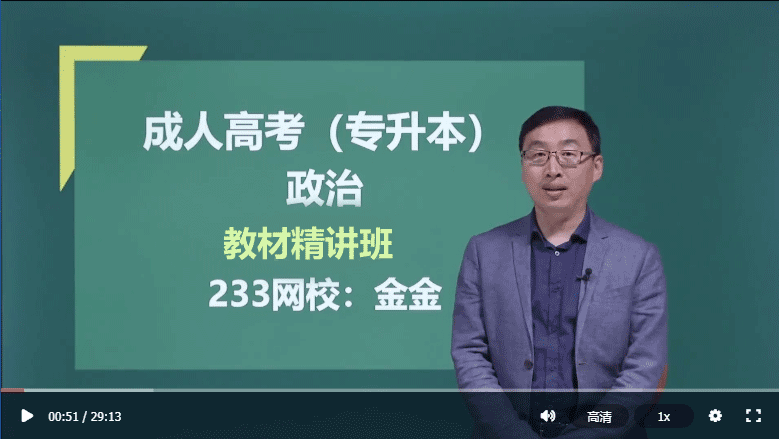цшфИхцЌшБшЏщ шЏЛчшЇЃшІчЙхц
ууPassage 16
ууCopernicus was born in TorunяМ PolandяМ on February 19яМ 1473. Little is known about his early life except that his father died when he was 10. An uncle adopted himяМ his two sistersяМ and his brother. The uncle saw to it that the two boys received a good education. Copernicus went to the University of Cracow. There he studied such subjects as LatinяМ mathematicsяМ and astronomy. It was probably at that time that he changed his Polish nameяМ Niklas KoppernigkяМ to the Latin form of Nicolaus Copernicus. In 1496 Copernicus went to ItalyяМ where he spent the next 10 years studying at various universities.
ууIn Copernicus' time people still believed that all things - the sunяМ the starsяМ and the planets-moved around the earth. It was an old belief that few men had ever questioned. Aristotle had based his theory of astronomy on this belief. Because the Church had long been the center of learningяМ the theory was also linked to religious beliefs.
ууIn 1506 Copernicus returned to his homeland. A few years later he began to work for the Church. All those years Copernicus carried on his work in astronomy. He had just the most basic equipment andяМ like other scientists of his dayяМ made observations with only his eyes. StillяМ using mathematics and logicяМ Copernicus
ууworked out a different theoryяМ which held that the planets went around the sun.
ууCopernicus did not announce his ideas. He did not want to make trouble. But he could not hide the scientific truth. So he talked about his theory with his friendsяМ who strongly advised him to have his work published. His great bookяМ On the Revolutions of the Heavenly BodiesяМ appeared at the very end of his life. Copernicus saw the first copy on the day he diedяМ May 24яМ 1543.
уу1. Which of the following is TRUE about CopernicusяМ
ууA. He had two brothers and a sister.
ууB. He used to be called Niklas Koppernigk.
ууC. He lost his father soon after he was born.
ууD. He spent 10 years at the University of Cracow.
ууцчЋ фНшЃттфККчЉфМ шЎА
уущхАцЄчБЛщЂхх чхфИЊщщЁЙяМчЖхххАхцхЛцОцЃчЁЎчцЁу
ууsee to it thatяМ фИхЎцГЈцхАттяМхЁхП тту
ууeg. See to it that you're ready on timeяМ хАцЖхфН хфИшІххЄхЅНяМ
уучцЁяМB
уу2. From the passage we can see that Astronomy is ______.
ууA. the life experience of great men
ууB. the movement of the stars and the planets
ууC. the scientific study of natural objects in space
ууD. the theories developed by scientists of old times
ууAstronomy хЄЉцхІ
ууcarry on хМхБушПшЁ
ууwork out шЎЁчЎучЎхК
ууwhich хМхЏМщщхЖцЇхЎшЏфЛхЅу
уучцЁяМC
ууц ЙцЎх ГщЎшЏхЎфНчИхКчхАцЙяМхІхОфИхКчцЁяМххОцчЋ фИщЂчЛЇчЛцОяМхшПшЁхцухЄцхЙЖхОхКцЃчЁЎччцЁу
уу3. Copernicus developed his theory ______.
ууA. using various telescopes
ууB. based on Aristotle's beliefs
ууC. through observations and reasoning
ууD. under the encouragement of his friends
уучцЁяМC
уу4. The writer of the passage wants us to know that ______.
ууA. Copernicus did not tell about his discovery until the day of his death
ууB. for many years Copernicus dared to do nothing openly against the Church
ууC. pushed by his friends Copernicus decided to write a book in May 1543
ууD. shortly before he got back to Poland Copernicus started to work for the Church
уучцЁяМB
уу5. Copernicus had his great book published because ______.
ууA. he didn't agree with Aristotle
ууB. he could not hide the scientific truth
ууC. he worked for the church
ууD. his friends advised him to do so
уучцЁяМD
ууthat хМхЏМхЎшЏфЛхЅу
ууlink to religious beliefs хтІтІхЎцфПЁфЛАшчГЛхЈфИшЕЗу
ууthe Revolutions of the Heavenly Bodies хЄЉфНшПшЁшЎК
уущЂфЙ Passage 17.
чИх ГцЈш
- 2017хЙДцфККщЋшфИхцЌшБшЏшшЏххЙДчщЂфНцчВОщцБцЛ03-28
- 2017хЙДцфККщЋшфИхцЌшБшЏшшЏххЙДчщЂфНцчВОщфЙ03-24
- 2017хЙДцфККщЋшфИхцЌшБшЏшшЏххЙДчщЂфНцчВОщх Ћ03-24
- 2017хЙДцфККщЋшфИхцЌшБшЏшшЏххЙДчщЂфНцчВОщфИ03-24
- 2017хЙДцфККщЋшфИхцЌшБшЏшшЏххЙДчщЂфНцчВОщх 03-24
| ПЮГЬзЈвЕУћГЦ | НВЪІ | дМл/гХЛнМл | УтЗбЬхбщ | БЈУћ |
|---|---|---|---|---|
| гяЮФ(ИпЦ№Еу)ОЋНВАр | ЕЫО§УФ | ЃЄ150 / ЃЄ150 |  |
БЈУћ |
| гЂгя(ИпЦ№Еу)ОЋНВАр | Monica | ЃЄ150 / ЃЄ150 |  |
БЈУћ |
| Ъ§бЇ(ЮФ)ОЋНВАр | ЭѕЗМ | ЃЄ150 / ЃЄ150 |  |
БЈУћ |
| Ъ§бЇ(Рэ)ОЋНВАр | ТогзжЅ | ЃЄ150 / ЃЄ150 |  |
БЈУћ |
| ДѓбЇгяЮФ(зЈЩ§БО)ОЋНВАр | ХЗбєАиСи | ЃЄ150 / ЃЄ150 |  |
БЈУћ |
| гЂгя(зЈЩ§БО)ОЋНВАр | Monica | ЃЄ150 / ЃЄ150 |  |
БЈУћ |
| ИпЕШЪ§бЇ(вЛ)(зЈЩ§БО)ОЋНВАр | ЭѕЬЮ | ЃЄ150 / ЃЄ150 |  |
БЈУћ |
| ИпЕШЪ§бЇ(Жў)(зЈЩ§БО)ОЋНВАр | ТогзжЅ | ЃЄ150 / ЃЄ150 |  |
БЈУћ |
ИЈЕМПЮГЬ
- ИпЦ№Еу-Ъ§бЇ(ЮФЪЗВЦОРр)

- ЭѕЗМРЯЪІ
 УтЗбЪдЬ§
УтЗбЪдЬ§
- ИпЦ№Еу-гЂгя

- MonicaРЯЪІ
 УтЗбЪдЬ§
УтЗбЪдЬ§
- зЈЩ§БО-ДѓбЇгяЮФ

- ХЗбєАиСиРЯЪІ
 УтЗбЪдЬ§
УтЗбЪдЬ§
АрМЖНщЩм
ЬзВЭАќКЌЃКзЈЩ§БОVIPАр/ИпЦ№ЕуVIPАрЃЈКЌОЋНВ+ецЬтНтЮі+ФЃПМЕуЬт)
ЬзВЭгХЪЦЃК1ЁЂЫјЖЈКЫаФПМЕу
2ЁЂПМЧАЗЂЗХ2ЬзЪдЬт
3ЁЂУтЗбжибЇвЛДЮБЃеЯ
ХфЬзЗўЮёЃК1ЁЂУтЗбЬтПт
2ЁЂПЮГЬНВвх+ПЮМўЯТди+вЦЖЏПЮЬУ







 УтЗбЪдЬ§
УтЗбЪдЬ§ 




